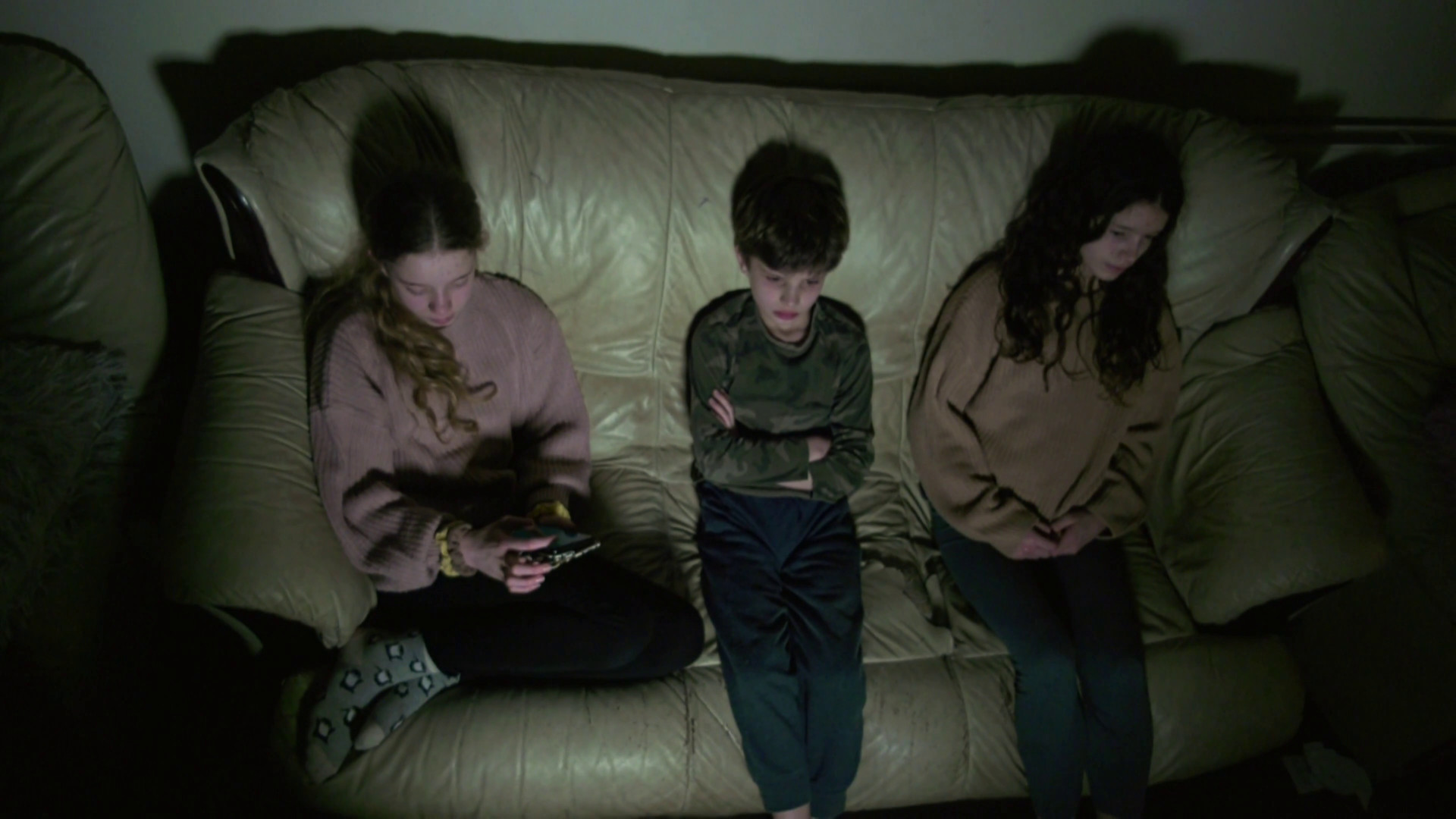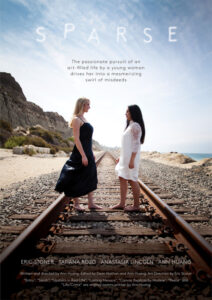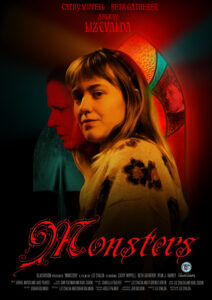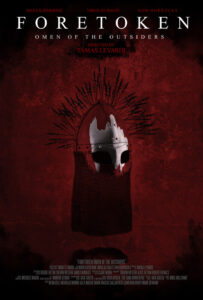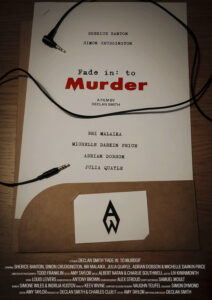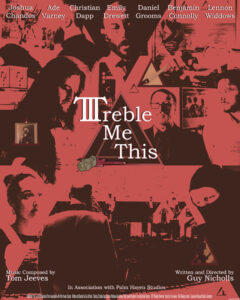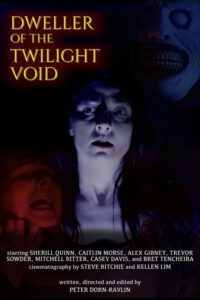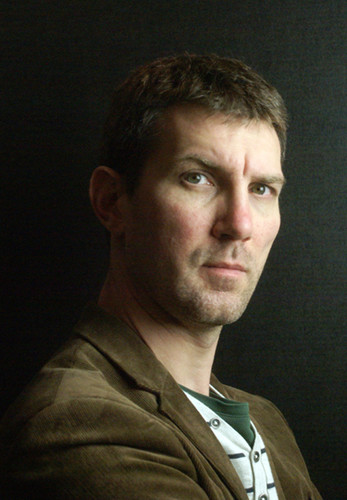
Christian Cook
As a graphic designer and short story writer, this mix of visual and narrative inevitably steered towards a move into film. After filming a documentary during lockdown and a corporate video for a home care business, he is currently working on several fictional short films.
Hello Christian and Thank you for granting us this interview
[MIS] Can you tell us about your journey from studying graphic design to becoming a filmmaker?
[Christian] When lockdown occurred during the COVID Pandemic, we were a family of seven stuck inside the house. Fortunately we avoided any serious illness, but it felt like we were witnessing something historic and I kept explaining to the children that this was something different that I hadn’t ever experienced in my lifetime. As a creative person, I felt a need to respond to this situation in some way and so I grabbed our small cheap camcorder and my phone and just started documenting our life at home. I’ve always loved photography and have written short stories so combining narratives with something visual was an experience that I really enjoyed.
A design client then approached me as lockdown was ending and asked if I did filming. I explained that I hadn’t really done much and didn’t really have the equipment, but we had a great working relationship and they kindly subsidised a lot of the equipment costs and so we shot a corporate film. After that first taste of a proper film shoot, it just became a natural process and we just carried on making films.
[MIS] How does your background in graphic design inform your approach to filmmaking?
[Christian] A lot of the foundations of design carry through other art forms in one way or another. Whether it’s messaging, balance, juxtaposition, weighting. I’ve always been drawn towards films with a strong visual presence, whether it’s the 1-point perspective of Kubrick or the framing and atmospheric lighting of Roger Deakins, I can easily rewatch these films dozens of times and get lost in the beauty of the cinematography.
In my own work, I try to step back from over-telling the story and leave the visuals to fill in the gaps.
[MIS] Your films often focus on daily issues and feature your family. Can you talk about why these themes and subjects are important to you?
[Christian] The way the series of shorts evolved was partly an accident and partly a situation that was imposed upon us by financial reality. I had two longer and more elaborate scripts completed that we tried to secure funding for, as we needed multiple locations and some professional actors. We weren’t able to get what we needed and so the choice was either to delay filming anything or change strategy. Looking at what resources I did have to hand, I set myself the challenge as to what films we could make using just the children and our own house.
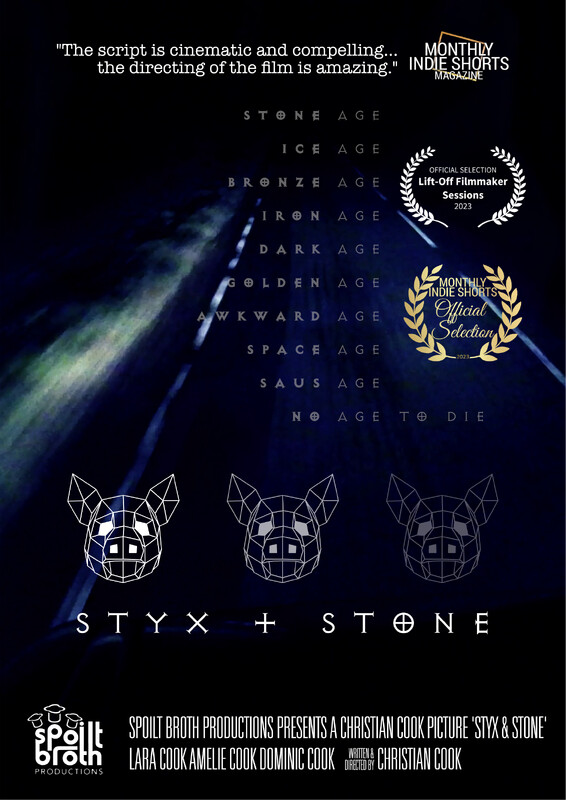
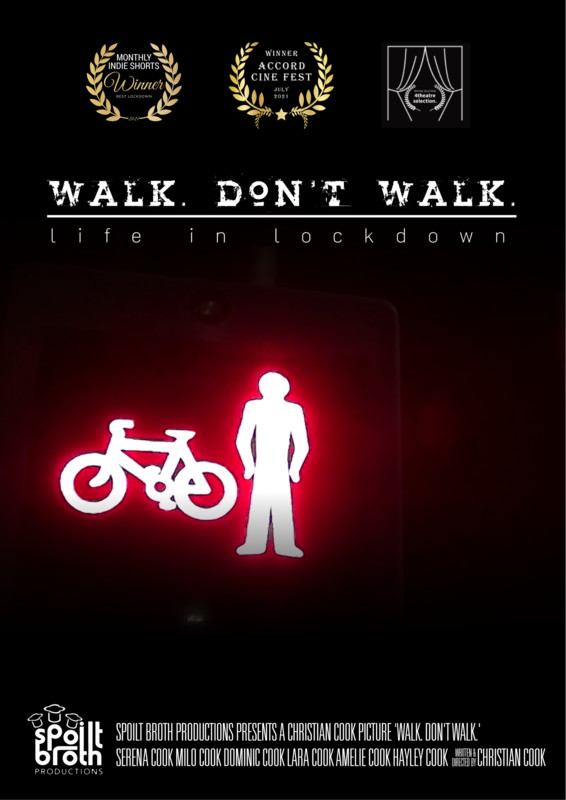
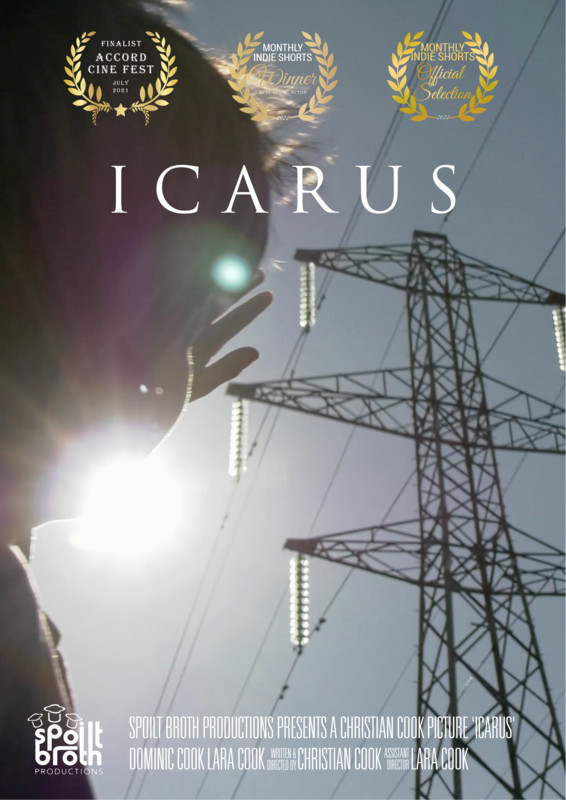
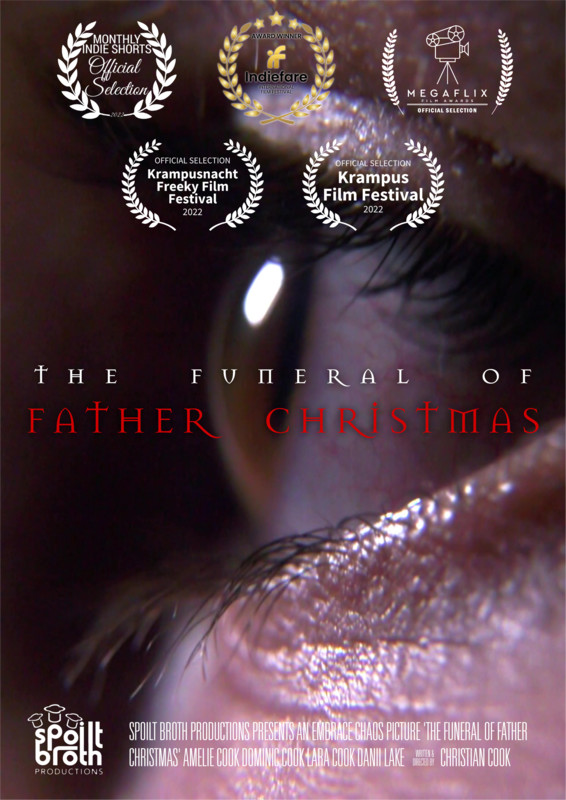
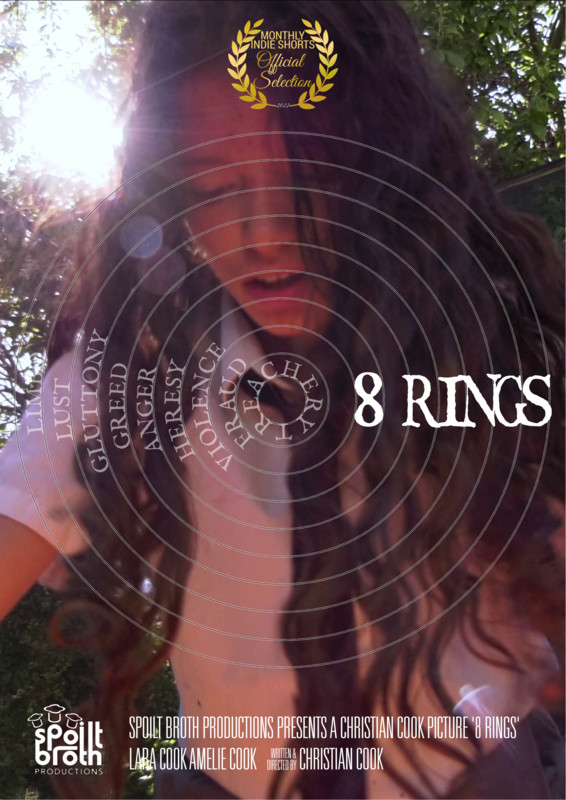
We shot ‘Icarus’ in a claustrophobically close crop in our garden and cut this with guerrilla footage beneath a pylon to make it look like it was happening in a large meadow. ‘8 Rings’ was filmed entirely on a trampoline in the same garden. ‘The Funeral of Father Christmas’ was filmed on a battered sofa in our lounge. ’Styx and Stone’ was shot in a car interior next to a hedge in our driveway.
By limiting the location down to a single point it forced the focus to be on the narrative, the acting and the cinematography to carry the audience engagement.
In terms of the themes and narratives, a lot of the plots revolve around how children perceive and process the wider adult world around them and how the transition from childhood to adulthood isn’t always a smooth one. Sometimes life will drop something big onto small shoulders and how we deal with this can define us for a long while afterwards. Although the films take an almost microscopic perspective of a short moment in a single location, I try to have something raw and elemental or even metaphysical hovering in the background. Sometimes it’s the small moments that give us a glimpse behind the curtain and we hear the echo of bigger wheels turning elsewhere.
[MIS] What are some of the challenges you’ve faced in making movies with your family members, and how have you navigated those challenges?
[Christian] The younger two children haven’t been that involved just because filmmaking can be a long, grueling process with a lot of intense hours put in just to get a handful of minutes. Milo has been involved helping behind the scenes a bit just to give him a taste of what’s involved.
The older three have all been fantastic to work with. Amelie wrote a short story that influenced one of the longer scripts we tried to get funding for. She also studies photography at school. Dominic and Lara are both keen drama students and they’ve all written and shot their own films, so there’s a lot of overlap and collaboration across all the roles when we shoot anything.
They naturally switch into a different mode when we film and I honestly couldn’t ask for a more dedicated and hard-working crew. Lara looks like she has an easy job lying in the grass as the girl who succumbed to a pylon in ‘Icarus’, but she was in an uncomfortable position with the sun in her eyes and insects crawling all over her. In between takes, she was assisting in directing Dominic and really earned her assistant director credit.
When shooting ‘The Funeral of Father Christmas’ we had microphones secreted around the sofa but one of them was misplaced and picked up a lot of creaks and scrapes from movements on the sofa. We had to reshoot the entire thing. On the second attempt, I decided to get a little ‘experimental’ with the lighting. I had a yellow and a soft pink and produced this otherworldly fairytale look, but when I came to edit the footage I hated it. It looked sickly sweet like a Battenberg cake, so I had to apologise to my cast and explain that we needed to completely reshoot the whole piece for a third time.
I felt really bad about it, but they all took it in their stride and didn’t complain once.
[MIS] Can you discuss your creative process when making a new film? How do you come up with ideas and develop them into a finished product?
[Christian] ‘Icarus’ was based on a short unpublished coming-of-age story called ‘Flowers in your hair’ that I stumbled upon when looking through old stories. ‘The funeral of Father Christmas’ just grew out of the news during the Christmas period during lockdown. The UK Government had announced that Christmas could go ahead unhindered and then was forced to do a U-turn at the last minute. Many people felt like Christmas had been cancelled. What with the various covid conspiracies and fake news flying around online, it all fed into the concept of the ultimate Christmas cancellation.
Sometimes it starts off with an idea for a scene, sometimes it’s a much broader concept or even a visual element that I latch onto. Various thoughts swirl in my head. Some of them combine, some separate. It’s the ones that keep coming back to you that eventually evolve into something.
‘Styx and Stone’ began as a short exchange of opening dialogue that went something like:
‘We should go back.’
‘We can’t go back. He’s dead.’
‘He might not be.’
‘If he wasn’t when we left, he will be now.’
In the end, it didn’t quite work within the final script and so it was removed. Quite often, the original spark that starts a piece off gets removed along the way. A lot of the time it gets removed and then forgotten. I refer to this as ‘crushing the seed.’ I quite like when this happens because the piece cuts free from what originally tied it to an origin and it becomes this self contained bubble that exists purely for its own existence.
[MIS] If you were to shoot “Walk. Don’t Walk. “Again, what would you do differently?
[Christian] ‘Walk. Don’t Walk’ was a largely improvised response to everyday family life during lockdown. It didn’t begin with the intention of becoming a documentary. I just felt the need to document what was happening. Once it became apparent that there was the potential to edit together a finished project, I did consider whether to interview friends and family within the health sector to get their insight, but this would have widened the scope up to a scale where I didn’t feel in a position to do the larger picture justice at the time. We were very fortunate that no one in the family suffered seriously with covid and so I didn’t want to attempt to jump onto a story that was not ours to tell. It was an honest slice of life of an international event seen through the lens of family life in lockdown.
I hope there isn’t another pandemic around the corner, but with the experience I now have in filmmaking then I would possibly consider a more traditional documentary with interviews, but it would depend on the situation at the time and what angle I felt I could best add my voice to.
[MIS] Your film “The Funeral of Father Christmas” have been described as both heartwarming and thought-provoking. How do you balance these two elements in your work?
[Christian] One of my favourite TV series when growing up was ‘One Foot in the Grave’ written by David Renwick. It was about the trials and tribulations of a grumpy old man, played superbly by Richard Wilson, dealing with his neighbours and various utility companies, often in arguments over the phone. One moment you would be in tears of laughter at him accidentally stepping in a dead hedgehog instead of a slipper and the next you’d be fighting back genuine tears as an elderly friend died. It segued so effortlessly from light material to very dark and I remember continually asking myself whether this was supposed to be serious or funny.
I realised it was about life, so it wasn’t trying to be either or anything, other than an honest serving of something genuine about humanity and life. Once I have an idea, I steer away from trying to provoke a particular reaction or try to weave in a particular message. Even when dealing with fantasy and mythical elements, I try to make sure the piece is being genuine within the logic of the piece. All I aim to do is to allow the piece to have the room to go where it needs to go and to say everything it needs to say.
If you serve up an honest slice of life that people can relate to then it will resonate with their own experience and connect with something genuine. The laughter and the tears will fall in the right place naturally from that.

[MIS] Can you tell us about any upcoming projects you’re working on, and what audiences can expect from them?
[Christian] I have a script in the early stages that revolves around fearful characters that live shut behind cupboard doors in an old house. It’s very elemental and follows a landlord/servant character who scurries between them to negotiate the exchange of food, blankets and water due to these being unevenly distributed. The location will be key in this one and it feels like another step up in our journey as a production team.
[MIS] How do you measure the success of your films? Is it based on critical acclaim, audience reception, or something else?
[Christian] I think each film has opened up our eyes and broadened our horizons as to where we look for validation. With the first film, we simply wanted to produce something we felt proud of enough that we would feel confident letting other people see it. With each new film, we’ve tried to cast our net wider to gain the feedback of reviewers and film audiences. Gaining IMDb recognition was a big early goal that we were pleased to achieve with each of our releases since. But however far you reach out for feedback, there will always be a spectrum of differing voices out there, so you have to answer to yourself first and foremost and trust your own inner voice to have the final word.
[MIS] In your opinion, do online film festivals provide the same level of exposure and networking opportunities for filmmakers as physical film festivals?
We came onboard the film festival circuit during the pandemic when every festival became an online festival. Things are starting to open up again, but the post-pandemic world isn’t the same as the pre-pandemic world. The way we interact, the way we work and the way we consume media has been altered to a new normal. We haven’t experienced enough of the offline festival to really draw any comparison just yet, but hopefully that will change in time.
[MIS] Finally, what advice would you give to someone who is just starting out as a filmmaker, especially someone with a background in graphic design?
[Christian] Being able to do your own graphics can be very valuable when it comes to promotion after a film is complete. Experience in graphic design also gives you an understanding and appreciation of the commercial side of creativity.
In terms of the actual filmmaking, start with a small project that you are confident you can carry through to completion. One completed project gives you a more holistic view of the entire journey and is far more valuable than having multiple half-finished pieces.
[MIS] Any final thoughts at the end of this interview?
[Christian] The galloping progress of AI and the concerns of creatives about their future role alongside this new technology is very interesting. Now that commercial companies have a vested interest in AI, an arms race has begun and so the genie is well and truly out of the bottle. When you consider that many politicians still haven’t caught up with the web and social media, I don’t think lawmakers will be able to regulate AI in the way many people are calling out for.
I think once AI generated films are indistinguishable from human created ones, there will be a novelty factor that will drive a brief explosion of interest, but then it will settle down to where AI films are just another genre. AI might be able to make films that look the same, but humans are natural storytellers and people will always have an interest in hearing the stories of other people. Having said that, one question that arises in all this is the unanswered mystery of what is the true nature of consciousness? If Integrated Information Theory is correct and consciousness is the emergent property of complex information systems then it might be that future AIs will achieve a level of consciousness comparable to the human mind.
At that point, we’re into Blade Runner territory. If a conscious AI has a story to tell and makes a film, maybe it has every right to do so and to be heard.



